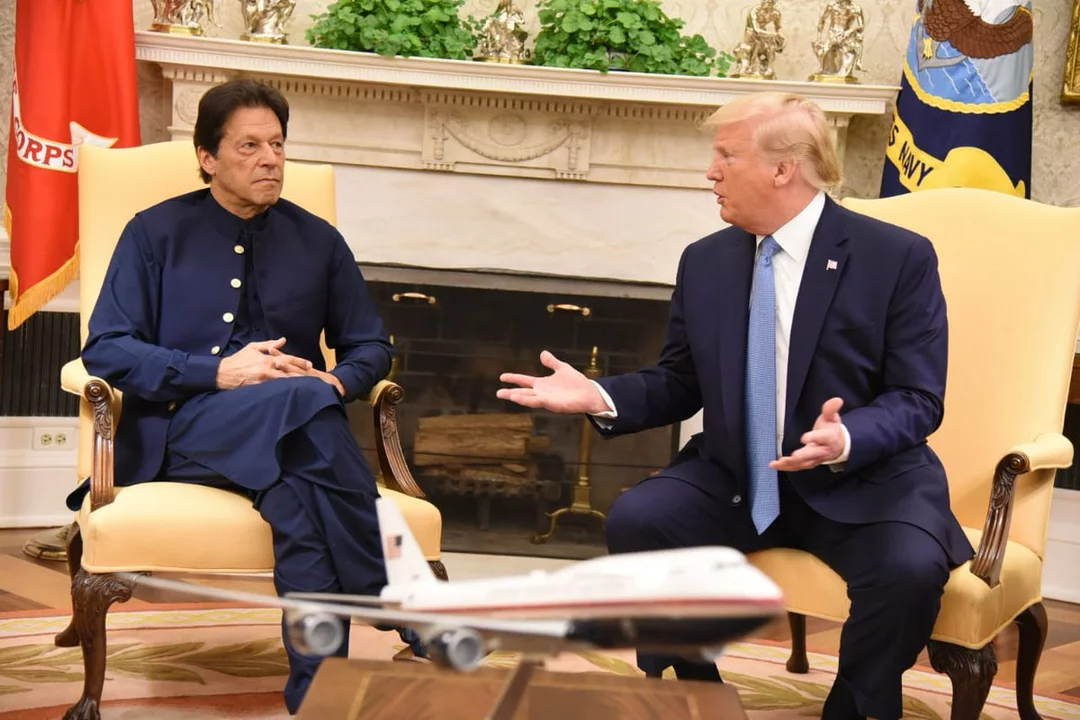Trump's Involvement in India-Pakistan Relations
As an avid follower of international politics, it's fascinating to see how global leaders interact with one another. Recently, President Trump has been involving himself in India-Pakistan relations by dialing up Prime Minister Modi. This move has caused quite a stir, and it's essential to understand the context behind these actions.
In an attempt to mediate the ongoing tensions between India and Pakistan, Trump reached out to Modi, hoping to facilitate some dialogue. This article will explore Trump's involvement in the matter, how PM Modi responded, and how Imran Khan, the Pakistani Prime Minister, has been called out in the process.
Understanding the Context: India-Pakistan Conflict
Before diving into the details of the phone call, it's crucial to understand the context behind the conflict between India and Pakistan. The two neighboring countries have had a tumultuous relationship since their inception in 1947 after gaining independence from British rule.
The primary source of conflict between the two nations is the disputed territory of Jammu and Kashmir. This region has been a hotbed of controversy and violence, with both countries claiming it as their own. The territorial dispute has led to multiple wars and ongoing skirmishes, making it a significant concern for global leaders.
Trump's Offer to Mediate
President Trump is known for his bold, assertive approach to international politics, and in this case, he's no different. He took it upon himself to offer his services as a mediator between India and Pakistan. Trump's offer came as a surprise, considering the delicate nature of the issue and the historical reluctance of Indian leaders to involve third parties in the dispute.
It's essential to note that Trump's offer of mediation was unsolicited, which has led to mixed reactions from both countries. While Pakistan has welcomed the idea, India has been more cautious in its response, reiterating its stance on resolving the issue bilaterally.
Modi's Response to Trump's Offer
Indian Prime Minister Narendra Modi, known for his prudent approach to international affairs, responded to Trump's offer with caution. While appreciating the gesture, Modi emphasized India's long-standing policy of resolving the India-Pakistan conflict bilaterally and without third-party intervention.
Modi's response is in line with India's historical stance on the issue, which has always prioritized direct dialogue with Pakistan. This position highlights India's preference for maintaining autonomy and control over its affairs and not internationalizing the Kashmir issue.
Imran Khan's Role in the Conflict
Pakistani Prime Minister Imran Khan has been a significant player in the India-Pakistan conflict since taking office in 2018. He has consistently advocated for international intervention in the Kashmir dispute, often urging global leaders to step in and mediate.
Khan's position on the issue has put him at odds with Modi's government, which prefers bilateral negotiations. As Trump reached out to Modi, it was an opportunity for the Indian Prime Minister to call out Imran Khan for his persistent attempts to involve international actors in the dispute.
The Future of India-Pakistan Relations
As the world watches the ongoing conflict between India and Pakistan, it's crucial to ponder the future of their relationship. Trump's involvement in the matter, while well-intentioned, may not be the solution that both countries need.
It's essential for India and Pakistan to engage in direct dialogue and work towards peaceful coexistence. While international mediation may provide temporary relief, it's ultimately up to the two countries to resolve their issues and chart a path towards peace and prosperity.
